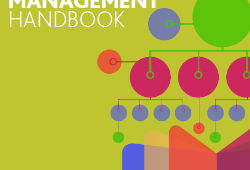Market leading corporations are embracing master data management (MDM) to help make use of their information assets and strengthen their competitive position. Others are either in early stage planning or at risk of lagging behind those who already dominate their markets. Although still an emerging technology, MDM is quickly becoming a mainstream tool in light of a stagnant economy, globalisation and the complexities of government regulations. By now, both IT and business managers are all too familiar with the high costs and expenses incurred by bad data.
However, MDM also brings new challenges that companies typically have not faced when deploying new business systems: defining business processes and data requirements that span lines of business, divisions and geographies. Here is the crux of the MDM challenge – data is commonly understood to be an IT domain issue, yet the business cannot operate without it. At the same time, business users usually need to access and view data in specific and sometimes prescribed ways.
The business needs to ‘own’ the data and they also need to effectively use technology to manage it.
Solving the many challenges associated with master data is a complex and extensive undertaking given that master data touches or draws from nearly every function across an organisation. A successful master data solution requires organisation-wide efforts, buy-in from stakeholders and a comprehensive technology approach.
An agile approach to MDM is proving to benefit organisations through more efficient usage of their scarce resources, improved operational efficiencies, enhanced customer satisfaction and increased competitive gains.
A successful MDM project is one that takes a business-first approach by understanding the business objectives and prioritising deliverables in increments which are both measurable and validate the business value, all while taking a technology approach that can support rapid delivery to demonstrate the value of the project to the business sponsor, or as needed to quickly identify alternate priorities.
For example, a European retail and commercial bank chose the agile master data management approach to implement MDM with great success. To get started, the common business objectives and their stakeholders were defined, and then linked to IT requirements. Further, stakeholders were mapped against each of the business objectives
Once the business objectives were well understood and it was identified who in the organisation would benefit from achieving the objectives, metrics were then defined to measure project success.
The proper metrics both help maintain alignment and define the information needed to answer the desired questions. Metrics alone have limited value when they are not aligned with stakeholder interests. Once metrics are defined, an ongoing process is required to review, track and report on the data to measure progress towards goals.
What followed next was a communication plan to address who, what, how, when and using which metrics. With a communication plan in place, project teams were able to manage the expectations and reduce the anxiety stakeholders may experience by keeping them updated on project progress. At the same time, the project team was able to capture both new and changing requirements.
Moreover, with regular communications and frequent milestones, project teams can proactively maintain the enthusiasm and interest of the business stakeholder, thus helping to ensure that ongoing project funding continues.
How does agile master data management ensure success? Success comes from blending the data analysis and the identification of the business objectives, along with organisational alignment and prioritisation based on business value. The other success factor is having access to the requisite skills to work with leading MDM technologies.
An agile approach to MDM is proving to benefit organisations with not only more efficient usage of their scarce resources; but more importantly, increased operational efficiencies, improved customer satisfaction and improved competitive advantage. Remember, even if you have already started an MDM project, it is never too late to adopt agile master data management.
Kelle O’Neal is managing partner at First San Francisco Partners. If you have any questions or comments, please contact her via email at kelle@firstsanfranciscopartners.com
Subscribe to our newsletter




